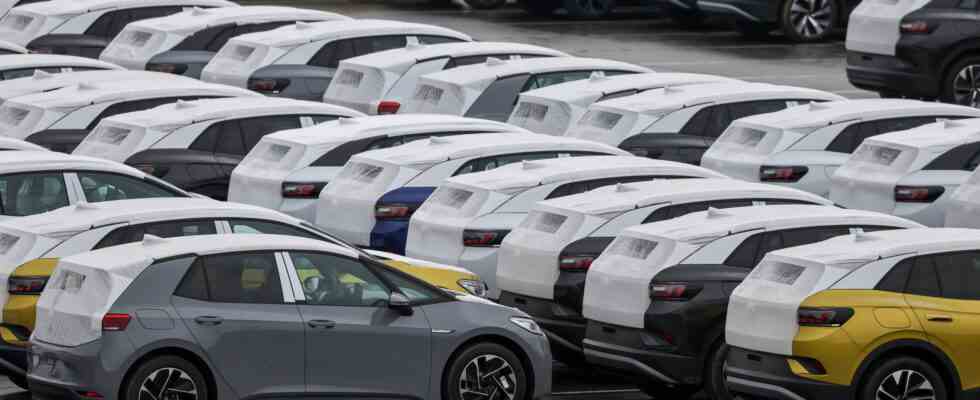Status: 12/27/2022 10:19 am
The German economy is suffering from the Ukraine war and the consequences of the corona pandemic. The car manufacturers, on the other hand, were once again able to make high profits. What can you expect in 2023?
It seems paradoxical. Despite high energy prices, despite persistent delivery difficulties for raw materials and important preliminary products and despite a weakening global economy, the German car companies made billions in profits in the summer.
The Volkswagen Group, for example, generated sales of more than 70 billion euros in the third quarter. This is not least due to the business in the USA, explains financial expert Robert Halver from Baader Bank: “The car companies have earned well, also in America. And since the dollar has been so strong and is still strong, the conversion results in a huge markup.”
Funding for e-cars is coming to an end
The transformation towards electromobility also seems to have been more successful recently, after the German car manufacturers had initially slept through the trend for years, according to many experts. And time is of the essence: from 2035, no new vehicles with combustion engines will be allowed to be registered in the EU.
Currently, every fifth new car on German roads is a “electric vehicle”. But the big business with e-cars could soon be over, at least in Germany, believes Ferdinand Dudenhöffer from the Center Automotive Research in Duisburg: “The main reason is that state subsidies are being withdrawn for medium-sized and small vehicles. In-hybrids are not supported at all.”
Another problem: If electricity prices remain as high as they have been recently, this could also deter potential buyers of e-cars. Especially when compared to the gas stations, where petrol and diesel are relatively cheap.
Question mark behind US business
The business of German car manufacturers in America could also suffer if the US government sticks to its newly announced protectionist course, according to Dudenhöffer: “If in the USA only vehicles whose batteries come from America are subsidized by the state, then tie it up we are squeezing the German and European battery production, which is currently under construction.”
So is the electric boom endangered? The sustainability expert Ingo Speich from Deka-Bank does not believe that: “The transformation to e-mobility is sustainable in the sense of long-term and sustained. E-mobility will not go away.” As far as ecological sustainability is concerned, there are still a number of question marks:
The substances for electric mobility must be procured from mines in Africa or South America, where human rights violations cannot be ruled out. And we also have a disposal problem with the batteries.
Sales in China are falling
But even if the e-car market in Germany should decline, it doesn’t have to be a catastrophe for the large German car companies. Because many have long been doing a large part of their business overseas. Volkswagen sold four out of ten vehicles in China earlier this year.
And financial expert Halver also sees good times ahead for the domestic car market, namely due to an improved economy: “We are not getting great growth rates, because the mood we are in at the moment is too bad. If the mood gets better, some will who has been waiting a long time to buy a car.”
Other market observers are more cautious. The latest sales figures from China are declining. According to this, German car manufacturers in the People’s Republic are losing more and more market share to the competition there – including in the case of e-cars.
ARD stock exchange: A look at the car industry
Nicholas Buschschlueter, HR, 12/20/2022 2:39 p.m

